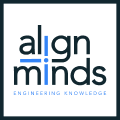MODIFIED ON: November 29, 2022 / ALIGNMINDS TECHNOLOGIES / 0 COMMENTS

Often it requires unique teams to practice the philosophy of engineering knowledge. And I’m glad to state that this is what differentiates AlignMinds.

What is knowledge engineering?
Knowledge Engineering is conventionally associated with methodologies to build knowledge-based systems or ‘Expert Systems’. However, in today’s dynamic digital world, it applies to almost all the technology systems that we build, deploy and use.
What is Knowledge?
Our CEO often quotes David Weinber to define ‘Knowledge’ and I always felt that it’s a beautiful summary – “Knowledge results from a far more complex process that is social, goal-driven, contextual, and culturally-bound. We get to knowledge — especially “actionable” knowledge — by having desires and curiosity, through plotting and play, by being wrong more often than right, by talking with others and forming social bonds, by applying methods and then backing away from them, by calculation and serendipity, by rationality and intuition, by institutional processes and social roles”
“Knowledge results from a far more complex process that is social, goal-driven, contextual, and culturally-bound.”
For us, ‘Engineering Knowledge means’ acquisition of knowledge and this process is transformed beyond the conventional specification process used to capture most business requirements. We engage in meaningful conversations, research and follow a dynamic approach towards solving the problem in front. This is particularly relevant since we work with a lot of startups building Minimum Viable Products (MVPs).
Why ‘Engineering Knowledge’?
There are several reasons why such a process makes sense:
- Unprecedented simplicity has become a crucial success factor of today’s applications compared to conventional software systems
- Without adequate knowledge acquisition and involvement from key stakeholders, the application has a high likelihood of failure
- Most of today’s applications – especially in mobility and cloud – have a social role to play.

Speaking a bit about me –After my Masters, I’ve been associated with other verticals in the previous episodes of my career before becoming a part of AlignMinds.
However, what made it enjoyable and inspiring despite my lack of exposure to a technology development environment was our acceptance of the dynamic nature of things around – fellow team members, customers, technology, and always, the business problems we were trying to solve.
Hence in a digital age that is so evolving and changing, we need to constantly seek to build systems based on actionable knowledge – which will excite people and transform the way we do things – compared to monotonous pieces of code that deal with just data and information.
Leave a reply
Your email address will not be published.
-
Recent Posts
- The Role of AI in Business Growth: Top Trends for 2025 and Beyond
- The Evolution of Voice Search in AI: What’s Next for 2025?
- How to Hire an AI Developer: A Complete Guide 2025
- Top 10 Android App Development Trends in 2025
- Top Trends in Product Modernization for 2025 and Beyond
-
Categories
- MVP Development (5)
- AlignMinds (56)
- Operating Systems (1)
- Android POS (3)
- Application Hosting (1)
- Artificial Intelligence (49)
- Big Data (2)
- Blockchain (1)
- Cloud Application Development (8)
- Software Development (39)
- Software Testing (9)
- Strategy & User Experience Design (4)
- Web Application Development (28)
- Cyber Security (6)
- Outsourcing (7)
- Programming Languages (3)
- DevOps (5)
- Software Designing (6)
- How to Code (4)
- Internet of Things (1)
- Machine Learning (2)
- Mobile App Marketing (5)
- Mobile Application Development (25)
- Mobile Applications (11)







